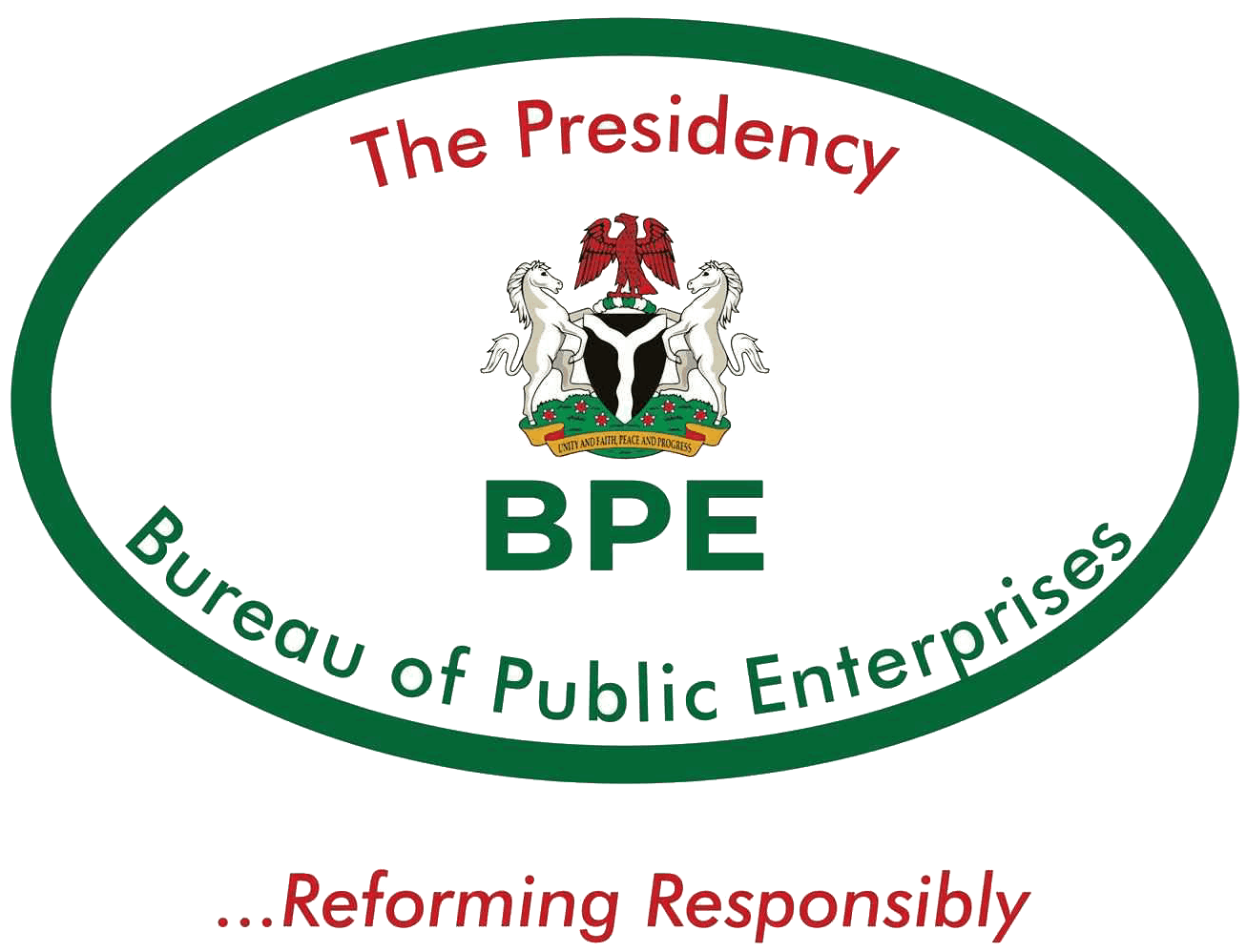
Frequently Asked Questions
Have a question? check these answers.
The Bureau of Public Enterprises (BPE) is a Nigeria agency tasked with implementing the federal government’s policies on privatisation and commercialisation of public enterprises. Established under the Public Enterprises (Privatisation and Commercialisation) Act 1999, it serves as the secretariat to the National Council on Privatisation (NCP) and drives economic reforms, particularly in the infrastructure sector.
The BPE evolved from the Technical Committee on Privatisation and Commercialisation (TCPC), established in 1988. The TCPC was transformed into the BPE in 1993, and it was restructured in 1999 as an independent body under the Public Enterprises (Privatisation and Commercialisation) Act, reporting to the NCP, chaired by the Vice President of Nigeria.
To be the model reform agency
Integrity and Transparency, Professionalism, Accountability, Result-Orientation and Teamwork
Mr. Ayodeji Ariyo Gbeleyi
a) Telecommunications
b) Power (e.g., unbundling of the Power Holding Company of Nigeria)
c) Seaports
d) Pensions
e) Solid minerals
Public enterprises are privatised to:
a) Reduce government financial burdens (e.g., subsidies and grants)
b) Improve operational efficiency
c) Enhance service delivery
d) Attract private investment
The BPE facilitates PPPs by structuring concessions and partnerships for infrastructure projects, such as seaports and power plants. It designs frameworks to attract private investment while ensuring public interest, often acting as a transaction adviser for government agencies.
Commercialisation is the process of turning a government-run or publicly owned entity into a profitable, independent business that focuses on market-driven results
I, Privatise Government non performing enterprises
ii, Commercialise Government enterprises
iii, Advise Government on reform and transformation process of the economy.
iv, Monitor Government Concessioned enterprises
v, Facilitating Public Private Partnership
The BPE’s primary objective is to enhance economic efficiency by privatising or commercialising public enterprises, reducing government financial burdens, and fostering private sector participation. It aims to reform key sectors like telecommunications, power, and ports, ensuring optimal resource allocation and improved service delivery.
No 11, Osun Crescent Maitama District Abuja
Privatisation: Involves transferring ownership and management of public enterprises to private entities, either fully or partially, to improve efficiency and reduce government expenditure.
Commercialisation: Involves restructuring public enterprises to operate as profit-making entities under government ownership, without transferring ownership.
• Enhance the performance of public enterprises through private sector participation.
• Reduce government financial burdens by divesting inefficient entities.
• Attract private investment to key sectors like power, telecommunications, and infrastructure.
• Create an enabling environment for economic growth through transparent and competitive reform processes.
a) Asset sales
b) Sales of Shares
c) Concessions or Lease
d) Public-Private Partnership
The BPE reports to the National Council on Privatisation (NCP), chaired by the Vice President of Nigeria. The Director General of the BPE serves as the member-secretary to the NCP, ensuring alignment with national privatization policies.
The National Council on Privatisation (NCP) is a high-level body in Nigeria, chaired by the Vice President, responsible for formulating and approving policies on privatisation and commercialisation. The BPE serves as the NCP’s secretariat, implementing its directives, preparing enterprises for privatisation, and providing technical and administrative support.
Privatisation is when the government sells a state-owned company to private individuals or businesses
The Vice President of Nigeria- Senator Kashim Shettima (GCON)
About 233 Public Enterprises.

